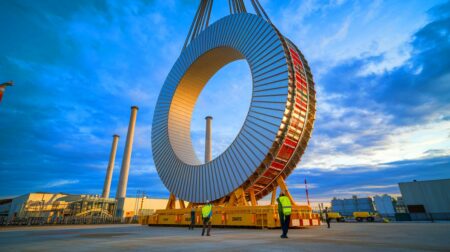We may be about to turn our planet into “Hothouse Earth,” scientists say, and the results won’t be pretty. Ice sheets at the poles will melt, causing rising sea levels to inundate low-lying coastal areas. Aridity will increase across much of the planet and food scarcity will become ever more acute.
Sounds like the scenario for an apocalyptic disaster movie, yes. Yet according to an international team of scientists, unless our global carbon emission reductions mandated in the Paris Agreement are met, we may well be unwittingly unleashing just this cataclysmic climactic event on ourselves and our planet.
Once the level of greenhouse gasses reaches a tipping point in the atmosphere, a “Hothouse Earth” scenario is likely with global temperatures soaring to 4-5°C above pre-industrial levels even as sea levels may rise 10-60m higher than they are today. “Crossing the threshold would lead to a much higher global average temperature than any interglacial in the past 1.2 million years and to sea levels significantly higher than at any time in the Holocene,” the authors warn in their study published in the Proceedings of the National Academy of Sciences in the US.

The researchers warn that human-induced global warming of 2°C may cause a cascade of so-called “feedbacks” whereby other planetary processes will contribute to further warming of temperatures even without any further human interaction. Permafrost in places like Siberia will thaw, thereby releasing vast amounts of methane trapped in the soil. Methane hydrates from the ocean floor might also be loosened on the planet. Land and ocean carbon sinks might weaken. Vast tracks of tropical and boreal forests might die off. The northern hemisphere may lose its snow cover.
“These tipping elements can potentially act like a row of dominoes. Once one is pushed over, it pushes Earth towards another,” warns the study’s co-author Johan Rockström, former executive director of the Stockholm Resilience Centre and incoming co-director of the Potsdam Institute for Climate Impact Research. “It may be very difficult or impossible to stop the whole row of dominoes from tumbling over. Places on Earth will become uninhabitable if ‘Hothouse Earth’ becomes the reality.”
Yet simply curtailing our carbon emissions won’t be enough, the experts believe. We’ll also create new biological carbon stores such as by planting forests, improving our agricultural practices and soil management, boosting biodiversity conservation, and inventing technologies that can remove carbon dioxide from the atmosphere and store it underground.
“Collective human action is required to steer the Earth System away from a potential threshold and stabilize it in a habitable interglacial-like state,” the researchers stress. “Such action entails stewardship of the entire Earth System — biosphere, climate, and societies — and could include decarbonization of the global economy, enhancement of biosphere carbon sinks, behavioral changes, technological innovations, new governance arrangements, and transformed social values.”
Did you like it? 4.4/5 (22)








